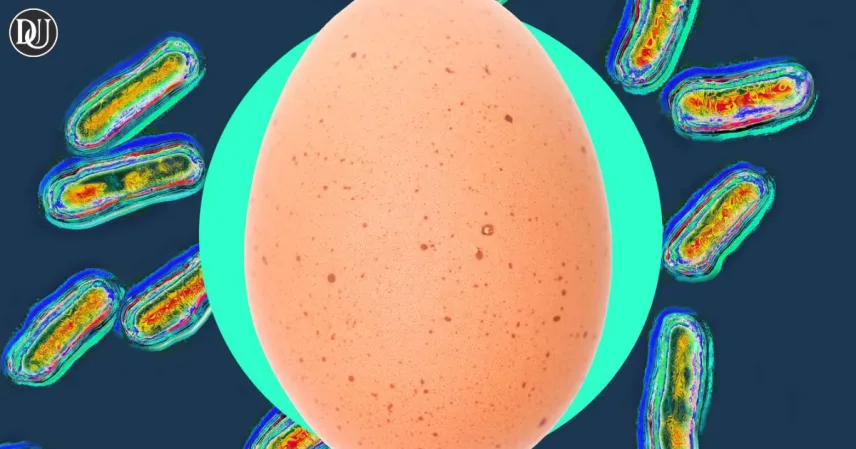A growing eggs recalled salmonella crisis has triggered health alarms across the United States, as dozens of people have fallen ill from contaminated eggs. Officials have expanded the recall to nine states as investigations continue into the source and spread of the infection. Consumers are being urged to take urgent precautions to avoid potential exposure to this dangerous bacteria.
What Sparked the Outbreak?
According to health officials, the outbreak originated from contaminated batches of eggs that tested positive for Salmonella. The U.S. Centers for Disease Control and Prevention (CDC) reported that multiple people had been hospitalized, though no deaths have been confirmed so far. Authorities suspect that the source is tied to a single commercial supplier, although the investigation is ongoing.
States Affected So Far
The eggs recalled salmonella warning now affects consumers in the following nine states:
-
New York
-
Pennsylvania
-
Ohio
-
Virginia
-
New Jersey
-
Delaware
-
Connecticut
-
Maryland
-
North Carolina
Officials advise residents in these areas to immediately check any eggs they have recently purchased and compare them with the recall batch codes shared by public health agencies.
Symptoms to Watch For
Salmonella infection can cause a wide range of symptoms. While some individuals may only experience mild gastrointestinal distress, others — especially children, the elderly, and those with weakened immune systems — may develop more severe reactions. Symptoms typically include:
-
Diarrhea
-
Fever
-
Abdominal cramps
-
Vomiting
Anyone experiencing these symptoms after consuming eggs should consult a healthcare provider immediately.
How Are Officials Responding?
The U.S. Food and Drug Administration (FDA) is coordinating with state and local health departments to remove the contaminated products from store shelves. The producer involved has issued a voluntary recall, halting distribution and initiating an internal review of safety protocols.
CDC officials have also issued updated guidelines for safe handling and preparation of eggs, urging consumers to:
-
Refrigerate eggs promptly
-
Cook eggs thoroughly before eating
-
Avoid consuming raw or undercooked eggs
These measures can significantly reduce the risk of eggs recalled salmonella infection.
What Should Consumers Do Now?
People who live in the affected states or who have purchased eggs from grocery stores in the last two weeks should:
-
Check packaging for recall information
-
Dispose of any eggs from the contaminated batch
-
Sanitize refrigerators and surfaces where eggs were stored
-
Monitor for any signs of illness
Those unsure about the safety of their eggs should err on the side of caution and discard them.
Could the Outbreak Widen?
There is concern that the eggs recalled salmonella issue may not yet be fully contained. With eggs widely distributed across national retail chains, other states may eventually be affected. Investigators are tracking shipping records and distribution channels to assess the full impact.
Health departments nationwide are being alerted to monitor for increases in salmonella-related cases. More recalls may follow as further testing is completed.
Final Thoughts
The current eggs recalled salmonella situation highlights the importance of rigorous food safety standards and rapid public health response. While the outbreak is being actively managed, consumers play a critical role by staying informed, checking their products, and following safety guidelines.










